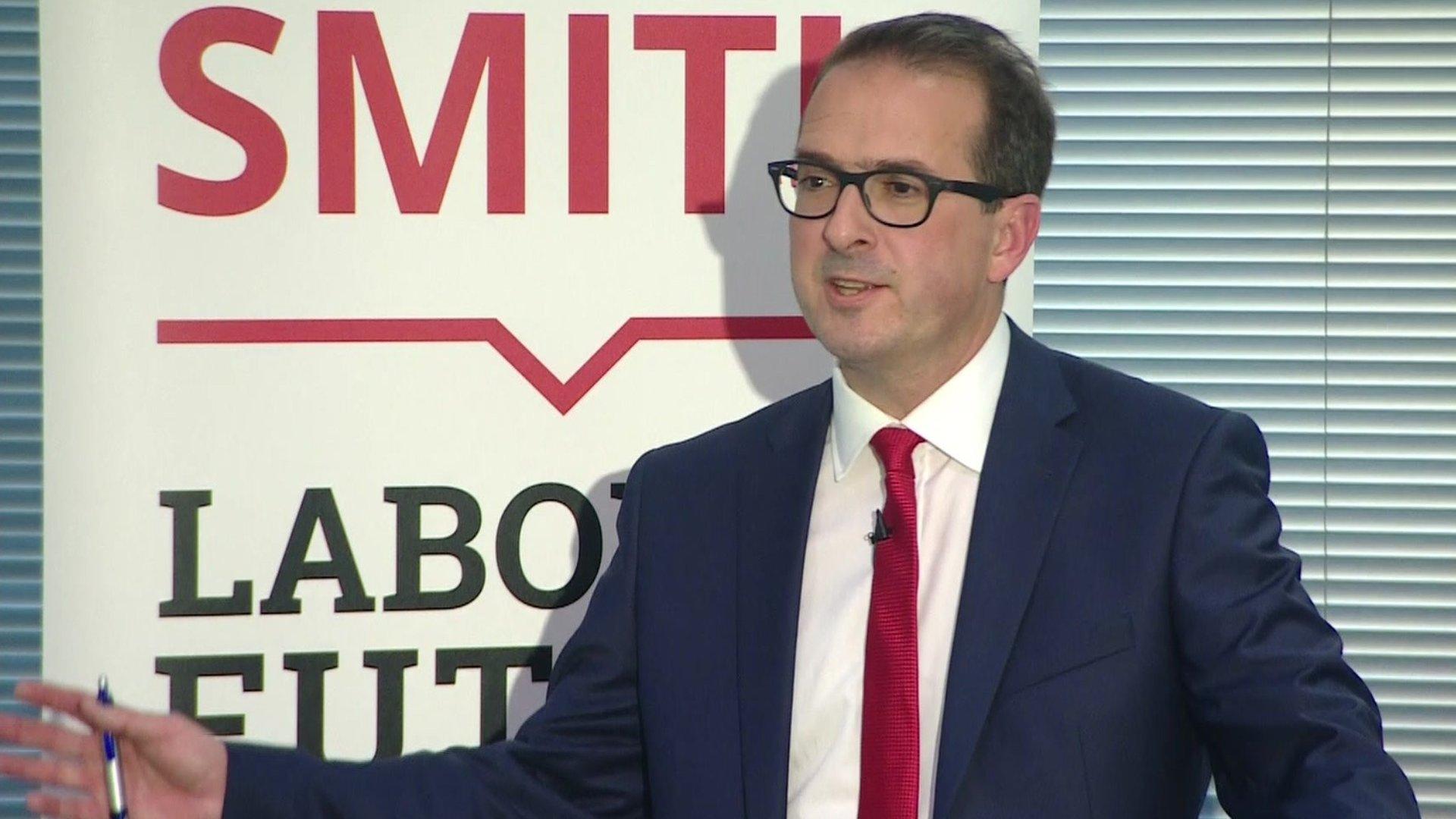Labour leadership: Corbyn and Smith clash over party unity
- Published
The two-hour debate in Cardiff is one of a series planned across the UK
Jeremy Corbyn and Owen Smith have clashed over party unity in the first Labour leadership campaign hustings.
Mr Smith said the party was "fractured" and "splintered" and said Mr Corbyn had been unable to hold it together.
Mr Corbyn said it was difficult for Mr Smith to complain "when you and others resigned from the shadow cabinet".
The rivals agreed on some points but Mr Smith said the Labour leader was unable to present a "credible government-in-waiting" to the wider country.
Former work and pensions spokesman Mr Smith is challenging Mr Corbyn for Labour's top job, after the leader lost a no-confidence vote of his MPs.
The two-hour, sometimes rowdy, hustings event in Cardiff, moderated by Catrin Haf Jones of ITV Cymru Wales, is one of a series planned across the UK during the contest, which ends on 24 September.
Mr Smith, who was met with groans from Mr Corbyn's supporters when he denied being part of a "coup" attempt against the leader, said the Tories were "riding roughshod over us" under Mr Corbyn: "We have got to carry the fight to the Tories much more aggressively than we have in recent months."
The party has "never looked more disunited", was 14 points behind the Conservatives in the polls and failed to put in place a "programme" to convince voters to put their trust in Labour.
"I want us to be radical in government, not radical in protesting against the Tories," he said.
Mr Corbyn had not been able to hold together the "coalition" of views within the Labour Party in Westminster - something he described as a "dereliction of duty".

Debate schedule
4 August - Cardiff
11 August - Gateshead
17 August - Nottinghamshire (BBC)
18 August - Birmingham
25 August - Glasgow
1 September - London (Guardian)

But Mr Corbyn said Labour had won four by-elections and four mayoral elections under his leadership and the "wave of resignations" from his front bench were the reason the party was now behind in the polls.
"It would be a good thing if Labour MPs got behind their leader and worked with them rather than briefing against them all the time," he said.
He said he understood political differences - having been a rebel backbencher himself - but "personal abuse is not acceptable".
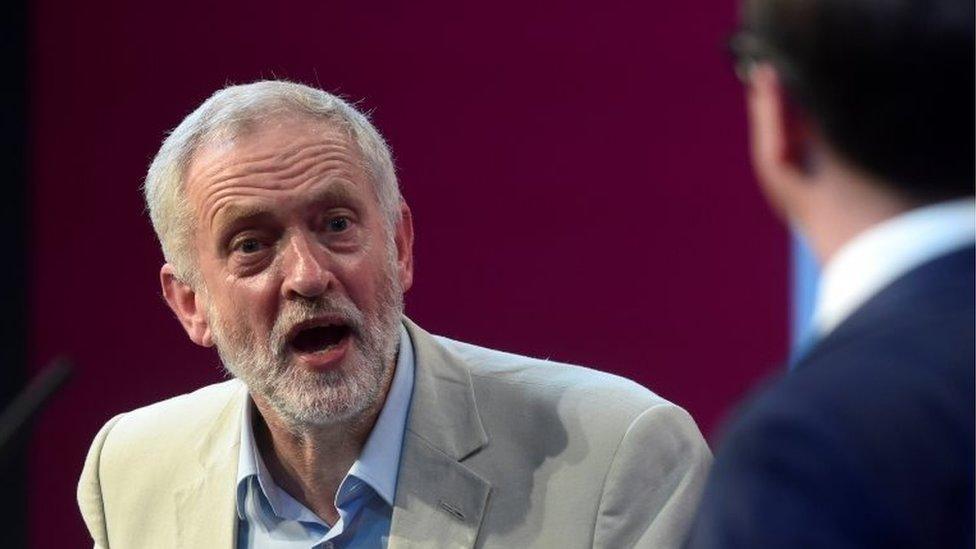
Mr Corbyn won a landslide victory in the 2015 leadership election
Mr Corbyn also criticised "childish" behaviour by some Labour MPs who had refused to attend a debate opened by shadow chancellor John McDonnell.
But Mr Smith said 172 Labour MPs had backed a motion of no confidence in him: "They are are not 'red Tories'... they are not Blairites - they are just Labour MPs," he said.
"We can't have this sort of ugly dialogue in the Labour Party. We are fighting like ferrets in a sack. It's the Tories who will benefit if we are not united."
'I agree'
There were moments where both men said "I agree" as their opponent talked. "We agree about so much of this stuff," Mr Smith said. "So why did you resign?," Mr Corbyn shot back. "Because I don't think you will be able to deliver it," came the response.
The leadership rivals also faced questions about anti-Semitism in the party, the EU Referendum, the renewal of Britain's Trident nuclear weapons system and Labour's reputation on the economy.
Mr Smith favours a second referendum on any Brexit deal while Mr Corbyn said "we have to recognise" that the "majority of people, sadly, did vote to leave" the EU and the party "has to win those people back".
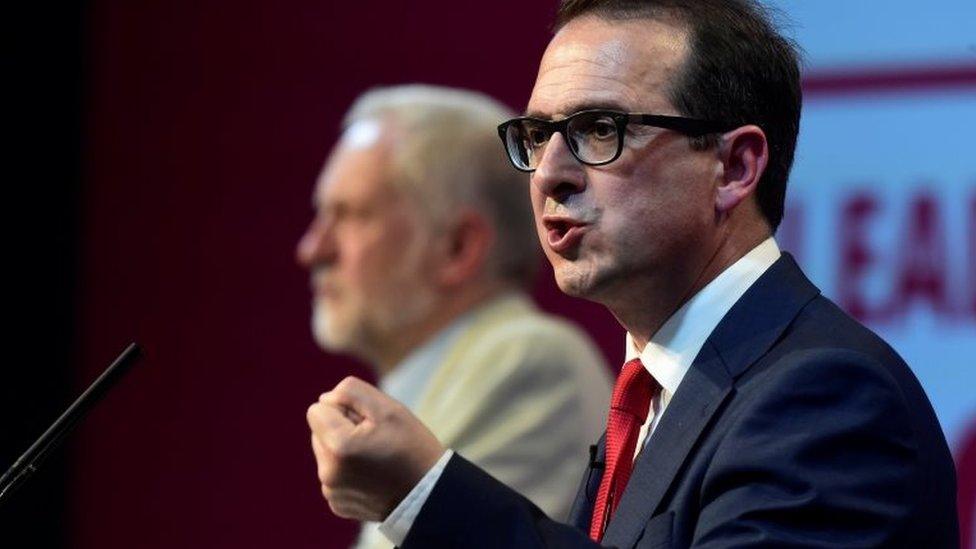
Owen Smith resigned as shadow work and pensions secretary
Mr Corbyn won cheers as he said he voted against renewing Trident - while Mr Smith said the "terrible truth" was that nuclear weapons were needed if the UK was "going to have any leverage to diminish stockpiles internationally".
Following an inquiry into anti-Semitism in the Labour Party, Mr Smith was cheered as he said anyone found guilty of anti-Semitism "would be out of our party and they would not be coming back".
Mr Corbyn said he had taken a strong stand against it adding: "Anti-Semitism is wrong and totally unacceptable in any form... and it absolutely has no place whatsoever in the Labour Party."
Throughout the debate Mr Smith stressed that Labour needed to be "credible" to be in a position to win the next general election: "While many in the Labour Party trust you, the country doesn't trust you and therein lies the problem."
'Changed politics'
Mr Corbyn said he believed he was trying to change prime minister's questions from "a public school debate into answering the questions that are put to me by ordinary people" and said he had "changed politics".
One of the reasons Labour lost the 2015 general election, he said, was they were "not offering a clear enough alternative to the British people" while they were now offering a "very different" economic alternative.
The challenge against Mr Corbyn - who won a landslide victory to become Labour leader last year - was triggered, following the EU referendum campaign, by Labour MPs unhappy with his performance.
Many felt Mr Corbyn had not campaigned hard enough for the UK to remain in the EU. Dozens of his frontbench team walked out and Labour MPs backed a motion of no-confidence in his leadership by 172 to 40, saying he could not win a general election.
But Mr Corbyn says he was democratically elected "for a new kind of politics by 60% of Labour members and supporters" and that he will "not betray them" by resigning.

Labour leadership election timetable
22 August: Ballot papers start to be sent out in the post (Labour Party members only) and by email
21 September: Deadline for ballot papers to be returned is midday
24 September: The result will be announced at a special conference in Liverpool

- Published4 August 2016
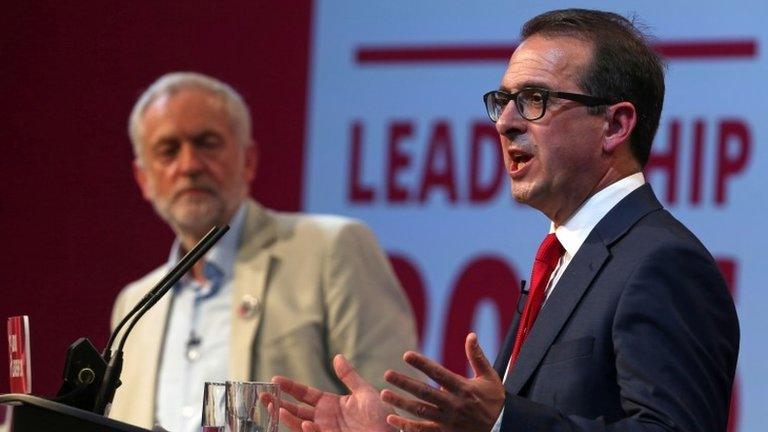
- Published30 July 2016
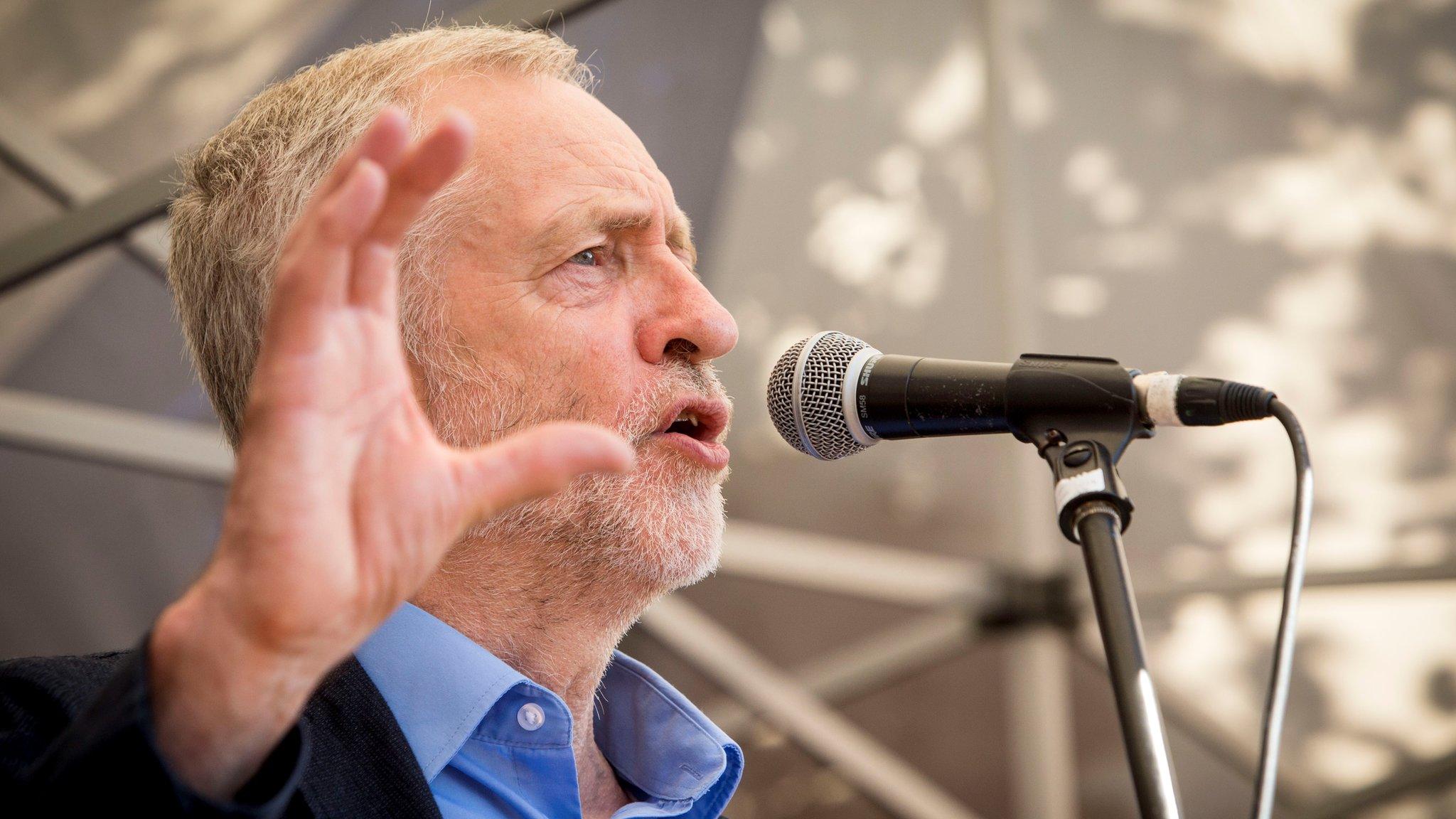
- Published3 August 2016
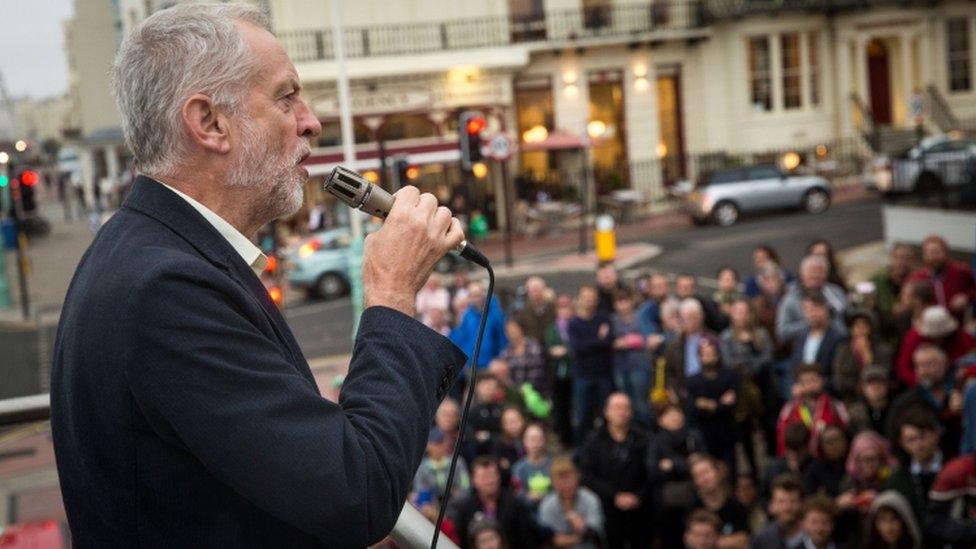
- Published27 July 2016
